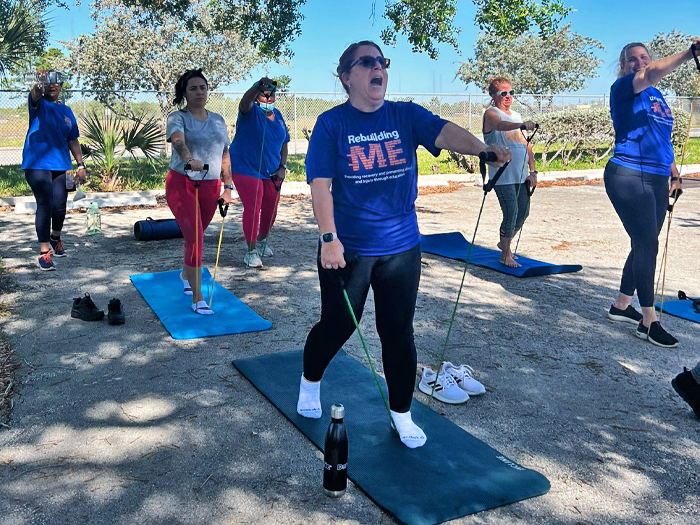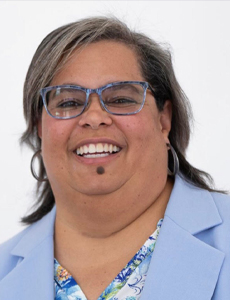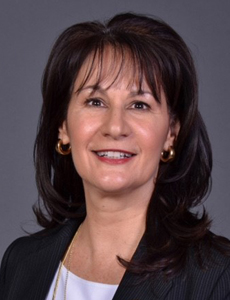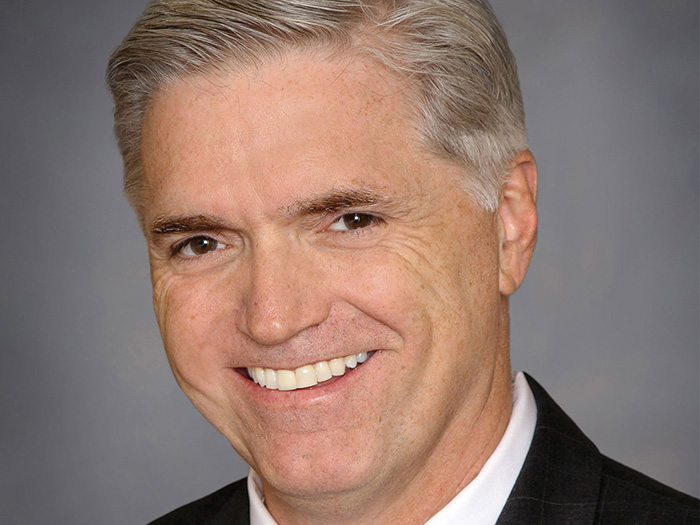2023 Teddy Awards | How Miami-Dade County Public Schools Saves Lives — and Millions in Claims Costs — Through Its Innovative Wellness Program

They say that mighty oaks from little acorns grow.
For Miami-Dade County Public Schools (M-DCPS), that acorn was the idea that the district’s on-site nurse was an underutilized resource. The mighty oak? A massive (and massively successful) health and wellness program credited with saving several million dollars — and several lives.
“I started to think, if I didn’t have that nurse in that function, how would I use them?” said Rosa Royo, director of workers’ compensation and loss prevention for M-DCPS, a 2018 and 2022 Risk All Star, and the driving force behind what would eventually become the district’s Rebuilding ME program.
“And I thought — erroneously, but it took me a while to figure out that I was wrong — that if we had the opportunity to provide folks information about their health and wellbeing, this would lead to significant improvement,” Royo said.
“I launched the program with zero dollars, really depending on our vendor community to come and help us out.”
The program began with a focus on the county’s transportation employees, especially bus drivers, who typically had a midday window of availability and also suffered from elevated levels of the kinds of health conditions that lead to higher workers’ comp costs.
But initial uptake was slow.
For whatever reason, people weren’t interested in taking full advantage of the resources the district made available to them. Fortunately, M-DCPS is a large organization with the ability to try out ideas that work best at a large scale.
In fact, M-DCPS is the third-largest district in the country, comprising 331,500 students and 34,000 employees across 465 schools; in size and complexity, it’s effectively like running a small city.
“Initially, we went in and said, ‘We’ve got all of these great tools for you to make yourself healthy,’ ” said Vilma Palma-Blackmon, senior vice president, Gallagher Bassett Services, who has been on the M-DCPS file for 25 years and now oversees the program’s adjusting team.
“And we noticed that some people who needed those tools weren’t engaging,” Palma-Blackmon continued. “We threw the kitchen sink at it until we developed the right formula. And now, it’s self-perpetuating. So we’ve got it right, and the success is building on the success, and we find employees bring their friends and peers in.”
The secret to that success was in finding the right way to draw people in — and that ultimately developed into a multi-pronged approach that would appeal to different people in different ways, including Risk & Insurance, which has awarded M-DCPS with a 2023 Teddy Award win.
Getting People Hooked on Health

Rosa Royo, director of workers’ compensation and loss prevention, Miami-Dade County Public Schools
“In all candor, we incentivized participation. During the first two years, we said, ‘If you come to the first class, you get a T-shirt,’ ” Royo said.
“It’s very small. But if you came to the majority of the classes throughout the work year, at the end, you got a bicycle … These were really nice bikes, too.”
At the same time, “there are people who are motivated by giving back to others,” Palma-Blackmon said.
“If you’re motivated not by your own personal wellbeing but by the wellbeing of others, there’s a program where, for specific weight-loss goals being achieved, our participants earn a pair of tennis shoes, but they also earn a pair of tennis shoes for a child who may not have access to them.
“We learned that, to achieve change, we had to connect with people at their level and motivate them based on their personal goals,” Palma-Blackmon continued. “For some, while they’re getting healthy, they’re giving back. It’s part of their purpose. For others, they’re learning how to take care of themselves so that they can take care of their families.”
What all of these incentives have in common, though, is that they are primarily a way to break the ice.
They may get people to attend their first nutrition or ergonomics seminar or show up to their first Zumba class, but “our core group — they don’t care about the incentives anymore,” Royo said. “We don’t have to reward as much.”
Instead, what keeps them coming is the culture that grew around the different ways the district helps its employees and community cultivate a healthier lifestyle.
The miraculous thing about this culture is that, once initiated, joining it became its own reward.
That initial jump-start in participation kicked off a feedback loop where employees witnessing the participation and community-building of others became more likely to understand the value of a healthier lifestyle and join in.
“We started to do things to bring people together from different yards,” Royo said.
She began “hearing from directors that folks who stayed within their own clique and didn’t participate across either racial or sociocultural lines — all of a sudden, they were coming together because they exercised together. Now, they knew each other and were more comfortable.”
Another positive feedback loop: As more employees and their families began to participate in the program, it enabled Rebuilding ME to offer a wider variety of services and events to appeal to yet more people.
A Community Founded in Wellness
Those early, positive results reassured the Rebuilding ME leadership team the strategy was working — and greater investment in it would yield even greater returns.
“In the second year, we had a retreat,” Royo said.
“And they started to build relationships among different yards. The first thing that we saw was that these folks who had gotten a bicycle formed their own bike club, which was really cool. Out of that, we created different aspects of the program, which was when we launched the Rebuilding ME adventures.”
Relatively inexpensive events that rewarded physical activity with an opportunity to socialize with coworkers in a fun setting proved to be a winning formula, and Royo leaned into it.
“We have a lot of park space that may not be in your neighborhood, but it’s accessible to you — activities that you may not think of doing but are available to you. So we’ve done bike rides in the Everglades, we’ve done rock climbing, we have an annual bowling tournament. We just did a sandbar activity about a week and a half ago,” Royo said.
That last event hints at one of Royo’s proudest moments, something that took her three years to accomplish: the introduction of an adult swim program.

Vilma Palma-Blackmon, senior vice president, Gallagher Bassett Services
As Palma-Blackmon explained, “We’re in South Florida. We’re surrounded by the ocean. There are pools in every other backyard. There are canals; there are rock pits. There’s a lot of water, and there are a lot of people in our community who don’t know how to swim.
“So one of the things that we’ve done through Rebuilding ME is brought swimming to the community, and we’ve opened it up for anyone at the school board and their families … You see the drownings in the news every day — Rebuilding ME, I believe, is helping to prevent those things from occurring.”
The benefits of adult swim classes don’t end there.
“We have an aging population, and not all of them are going to be able to continue to do a Zumba or any kind of resistance workout. We wanted to have them be comfortable in the water, and they weren’t,” Royo said. “If the doctor said, ‘Try aquatherapy,’ they were not comfortable.
“A year ago, in March, we launched our adult swim, and it was really well-received,” Royo continued.
“We started with folks who were gripped to the side of the pool … When we went to the to the sandbar event, I had adult women showing off how they could swim with a noodle and do all kinds of things, and they were in the ocean.”
Success However You Measure It
Each new success enabled Royo to push the program further, always with the goal of reaching more of the district’s employees and instilling in them the value of a healthier lifestyle.
The leadership team grew as well: Gallagher Bassett’s Naomi Amanzio, formerly a claim supervisor, obtained a certification in wellness in order to expand her role from coordinating care for injured workers with severe comorbidities and have a more proactive hand in developing the program’s resources and activities.
“We did an event on Miami Beach,” Royo said. “We had tai chi, we did meditation and yoga, we had aromatherapy, and we had a healthy lunch for them. It was a very elegant event.”
And it was here that Royo received the kind of feedback she cherishes.
“A woman whom I didn’t know went to the flower bar, and she had a bouquet made for me, and she said, ‘You saved my life.’ ” Royo later learned that the woman was a single parent dealing with depression, and that the exercise program and connections she made through it helped her immensely.
These classes have helped untold numbers of the district’s employees. But one of Rebuilding ME’s most impactful programs allows people to work one-on-one with trainers and practitioners — which proved essential during the pandemic.
“I would deem Miami-Dade Schools to be beyond cutting-edge and sophisticated. It is a compassionate program that delivers a significant ROI for the school board, and every dollar goes back into the classroom.” — Vilma Palma-Blackmon, senior vice president, Gallagher Bassett Services
“One of our first success stories was a gentleman [of] over 500 pounds, and he had trouble laying down without being on oxygen. In order to have an MRI, we had to have a pulmonologist present,” Royo said.
“Forget getting him back to work. This is someone who’s given up, who’s waiting to die.”
After struggling to lose weight on his own for years, “he lost 90 pounds. And he found joy again,” Royo said. “When he retired, we were able to settle the claim for a very reasonable amount of money,” as compared to a permanent total disability claim, reassuring Royo that the investment had been both humane and financially responsible.
“It may seem like some of the fluff of the program, because I don’t have a way to quantify these stories, but I can see that it’s having an impact on folks,” Royo added.
“For the folks who need the more pragmatic: In the first three and a half years of the program, we saved $4 million. Looking at our transportation sites, the more active they were, the more involved they were in the program, the greater the savings.”
“Rebuilding ME has saved millions of dollars for the school board,” agreed Palma-Blackmon.
“Millions upon millions. It’s not just one or two … We have analytics that clearly illustrate that Rebuilding ME is making a difference. The fact that we are able to pay it forward is just a benefit of the savings we’ve been able to achieve on behalf of the school board.
“I would deem Miami-Dade schools to be beyond cutting-edge and sophisticated,” Palma-Blackmon continued. “It is a compassionate program that delivers a significant ROI for the school board, and every dollar goes back into the classroom.” &
 The Teddy Award, established in 1994, was named in honor of President Theodore “Teddy” Roosevelt, who introduced the first piece of significant workers’ compensation legislation in the U.S. The Teddy Award honors employers across the country for achieving excellence in workers’ compensation and injury prevention.
The Teddy Award, established in 1994, was named in honor of President Theodore “Teddy” Roosevelt, who introduced the first piece of significant workers’ compensation legislation in the U.S. The Teddy Award honors employers across the country for achieving excellence in workers’ compensation and injury prevention.
To view the four winners selected for 2023, visit here.










